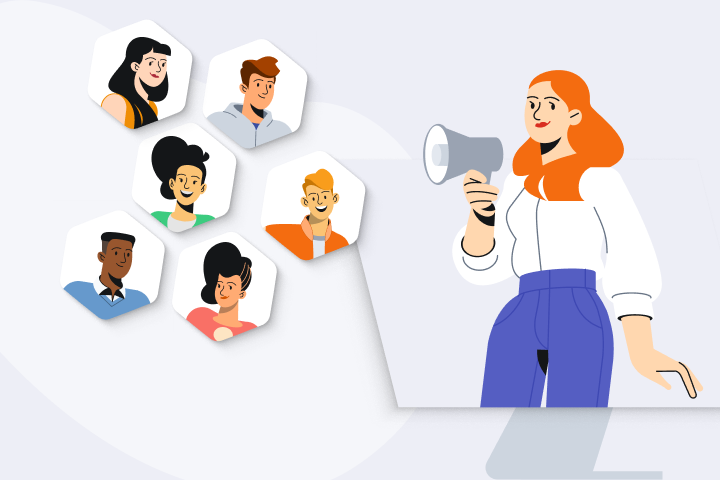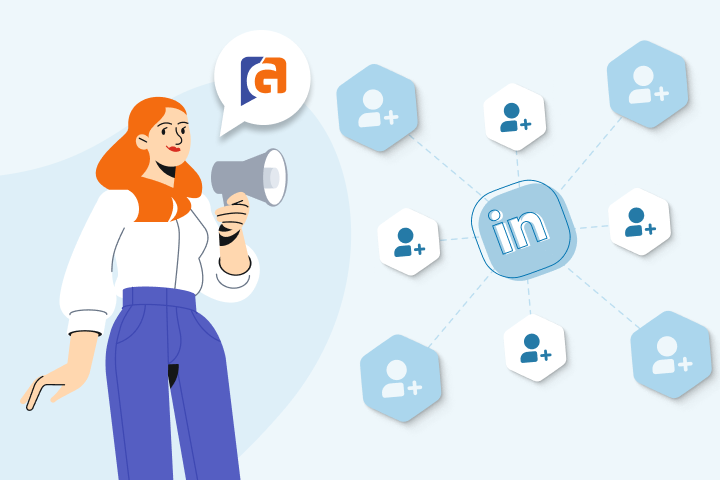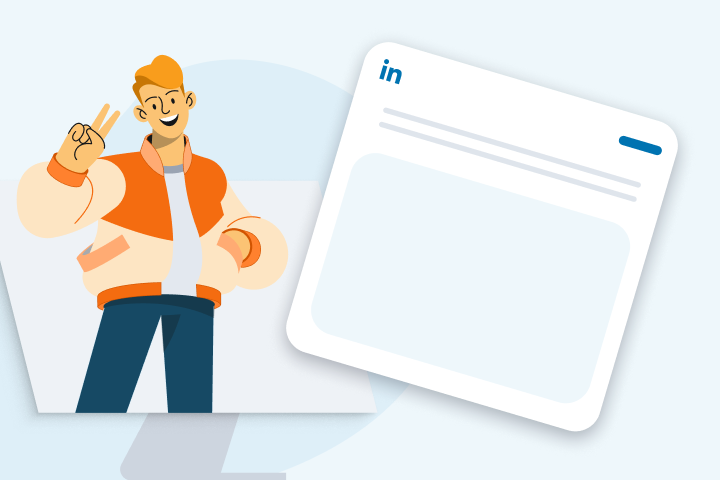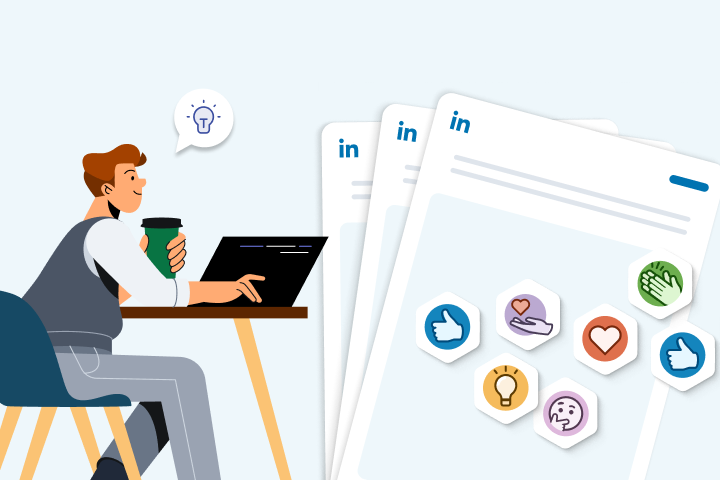AI in B2B Marketing: Strategies, Benefits, and Future Trends
Think less Skynet, more Jarvis—AI that makes you smarter, not obsolete.
Artificial intelligence isn’t just disrupting B2B marketing—it’s rebuilding it from the ground up. Once limited to futuristic predictions and experimental use cases, AI is now firmly embedded in the core of modern B2B strategies. From automating content creation to identifying high-intent prospects, AI is helping marketing teams execute smarter, faster, and more efficiently than ever before.
In an era where buyer journeys are increasingly nonlinear and attention spans are shrinking, B2B marketers must balance precision with scale. This is where AI thrives. It sifts through massive datasets, uncovers insights no human could find alone, and continuously adapts to changing behaviors. The result? Messaging that resonates, campaigns that convert, and teams that operate with strategic clarity.
If you’re not already leveraging AI in your marketing stack, you’re leaving money—and momentum—on the table. Let’s explore how AI is changing the B2B marketing landscape, the tools powering this transformation, and how leading brands are staying ahead of the curve.
The Evolution and Strategic Importance of AI in Marketing
AI's role in marketing didn’t start with ChatGPT or predictive lead scoring tools—it’s been quietly evolving for decades. In the early 2000s, marketing automation platforms introduced basic rule-based workflows, paving the way for more sophisticated machine learning applications. By the 2010s, algorithms were being used to optimize email timing, segment audiences, and recommend products based on past behavior.
The real inflection point came with the rise of big data and cloud computing. These innovations enabled AI to process and analyze vast amounts of customer data in real time. As natural language processing (NLP) and deep learning advanced, marketers gained access to tools that could generate content, interpret sentiment, and even converse with leads autonomously.
Today, AI is not just a nice-to-have—it’s a core pillar of competitive marketing strategies. With each passing year, the technology becomes more accessible and integral to everything from campaign planning to performance analysis. And we're only scratching the surface.

Why AI is Reshaping B2B Marketing Strategy
B2B marketers today are under more pressure than ever to personalize at scale, deliver data-driven results, and stay agile across fragmented digital channels. AI meets these demands head-on by automating repetitive tasks, uncovering actionable insights, and personalizing content based on behavior—not assumptions.
Beyond surface-level efficiency, AI empowers marketing teams to better align with buyer expectations. Today’s B2B buyers conduct extensive self-guided research before ever reaching out to a sales team. That means marketing content must be timely, hyper-relevant, and accessible across multiple channels—all of which AI can help orchestrate seamlessly.

AI’s influence stretches into customer journey mapping, content recommendation engines, dynamic campaign execution, and even sentiment analysis. Its ability to parse unstructured data—from CRM notes to social posts—helps teams identify patterns and engagement triggers that would otherwise go unnoticed.
AI is no longer just hype. As Forbes notes, it's becoming an essential growth driver in B2B marketing by helping brands optimize resources and shorten long sales cycles. Whether you're running multi-touch campaigns or refining messaging for niche audiences, AI is quickly becoming your most reliable teammate.
Core Applications of AI in B2B Marketing Today
As AI technologies mature, their practical applications in B2B marketing are rapidly expanding. No longer confined to theoretical benefits, AI tools are being deployed to solve real-world challenges across the marketing funnel. From boosting lead quality to driving personalized engagement and automating content workflows, AI is embedding itself into every step of the marketer's playbook.
Let's talk about the primary ways AI is currently transforming B2B marketing workflows:
Predictive Analytics and Lead Scoring
AI enables marketers to use historical and behavioral data to forecast which leads are most likely to convert. This streamlines decision-making for sales teams and improves campaign performance. By integrating predictive scoring models, teams can segment prospects based on buying intent and prioritize outreach accordingly. For example, HubSpot integrated AI predictive lead scoring and saw a 45% increase in lead-to-customer conversion rates.
AI-Powered Personalization at Scale
B2B audiences expect content that feels tailor-made, not generic. AI facilitates hyper-personalization by dynamically adjusting email content, website experiences, and ad creative based on user behavior, demographics, and firmographics. Adobe Experience Cloud exemplifies this by using AI to generate landing pages tailored to industry and company size—significantly improving form completion rates and driving more demo requests.

Intelligent Content Creation and Optimization
Content creation at scale is one of the most resource-heavy tasks in B2B marketing. AI now helps generate content ideas, draft high-quality copy, optimize SEO, and even adapt tone based on audience segment. HubSpot’s internal AI, for instance, assists marketers in generating blog outlines and social media copy aligned with their ideal customer profiles, while also providing real-time readability and engagement tips.
.webp?width=762&height=768&name=HubSpot%20AI%20Breeze%20offers%20a%20Content%20Agent%20feature%20to%20help%20with%20website%20blogs%20and%20streamline%20content%20creation%20(1).webp)
Chatbots and Conversational AI
AI chatbots go beyond scripted interactions—they use natural language processing to understand intent, engage users in meaningful conversations, and guide them through complex B2B buyer journeys. Businesses across industries are realizing tangible gains by integrating AI-driven conversational tools into their workflows.
For instance, Tidio implemented its conversational AI chatbot, Lyro, and reduced first response time by 75%—from one minute to less than 15 seconds—enhancing customer service efficiency. Similarly, Chipotle launched a conversational assistant named "Ava Cado" that reduced their time-to-hire from 12 days to just 4, while increasing application completion rates from 50% to 85%. These real-world examples demonstrate how conversational AI can dramatically improve speed, responsiveness, and user experience—key components in today’s competitive B2B landscape.

As AI technologies mature, their practical applications in B2B marketing are rapidly expanding. No longer confined to theoretical benefits, AI tools are being deployed to solve real-world challenges across the marketing funnel. From boosting lead quality to driving personalized engagement and automating content workflows, AI is embedding itself into every step of the marketer's playbook.
The Business Impact of Doing AI Right in B2B Marketing
When AI is implemented effectively, the benefits extend far beyond efficiency gains. Done well, AI becomes a catalyst for measurable business growth. High-performing marketing teams that embrace AI often report stronger ROI, faster sales cycles, and significantly improved customer experiences. AI not only streamlines operations but also unlocks new ways to drive strategic differentiation and competitive advantage.

Some of the most notable benefits include:
-
Higher Conversion Rates: AI tools help personalize messaging, predict buyer behavior, and deliver content at the optimal time—leading to more qualified leads and closed deals.
-
Improved Marketing Efficiency: By automating routine tasks like reporting, segmentation, and content optimization, teams free up time to focus on creative strategy and innovation.
-
Better Customer Insights: AI analyzes structured and unstructured data across touchpoints, offering marketers a more nuanced understanding of their audience.
-
Greater Agility and Scalability: AI-powered systems continuously learn and adapt, allowing B2B companies to react in real time and scale campaigns without increasing headcount.
In short, successful AI integration is not about replacing marketers—it’s about enhancing their impact across the entire marketing lifecycle.
How AI Enhances Account-Based Marketing (ABM)
AI has become a game-changer in the world of Account-Based Marketing by transforming how B2B organizations identify, engage, and convert high-value accounts. Traditional ABM strategies rely heavily on manual data collection, static segmentation, and generalized outreach, which often leads to inefficiencies and missed opportunities. AI brings a layer of precision and scalability to these efforts that simply wasn't possible before.
With the help of AI, marketing and sales teams can now:
-
Identify high-value accounts with intent data: AI scans vast digital footprints—including search behavior, content engagement, and technographic data—to pinpoint accounts showing signs of purchasing intent.
-
Tailor messaging to specific buying stages: Machine learning models assess where each account is in the buyer journey and recommend messaging that resonates based on historical patterns and real-time signals.
-
Provide shared analytics dashboards for both teams: AI platforms unify data across departments, enabling marketing and sales to collaborate around a single source of truth with insights like engagement scores, content interactions, and progression metrics.
Platforms like 6sense and Demandbase are at the forefront of this shift. For example, 6sense uses AI to surface in-market accounts before competitors can and suggests tailored plays across email, ads, and sales outreach. The result is faster conversions, higher deal sizes, and better alignment across go-to-market teams.
Real-World Success Stories Using AI in B2B
IBM
IBM has integrated its AI platform, Watson, to elevate marketing automation and customer engagement. Through Watson Campaign Automation, businesses have been able to create data-informed, multi-channel marketing strategies. For instance, a growing restaurant chain used Watson to segment its customer base and send highly personalized offers, resulting in increased customer loyalty and engagement.
Adobe
Adobe's Sensei AI framework powers its Experience Cloud, enabling marketers to automate content creation, deliver personalized web experiences, and make data-backed decisions. By using Sensei to build dynamic customer profiles and automate asset tagging, Adobe has helped B2B teams cut production times and boost engagement across personalized campaigns.
GaggleAMP
GaggleAMP uses AI to enhance employee advocacy by recommending the most impactful content for users to share, paraphrasing posts to preserve authenticity, and analyzing detailed engagement metrics. This enables marketing teams to efficiently scale their advocacy efforts while ensuring the messaging remains aligned with brand tone and tailored to individual audiences.
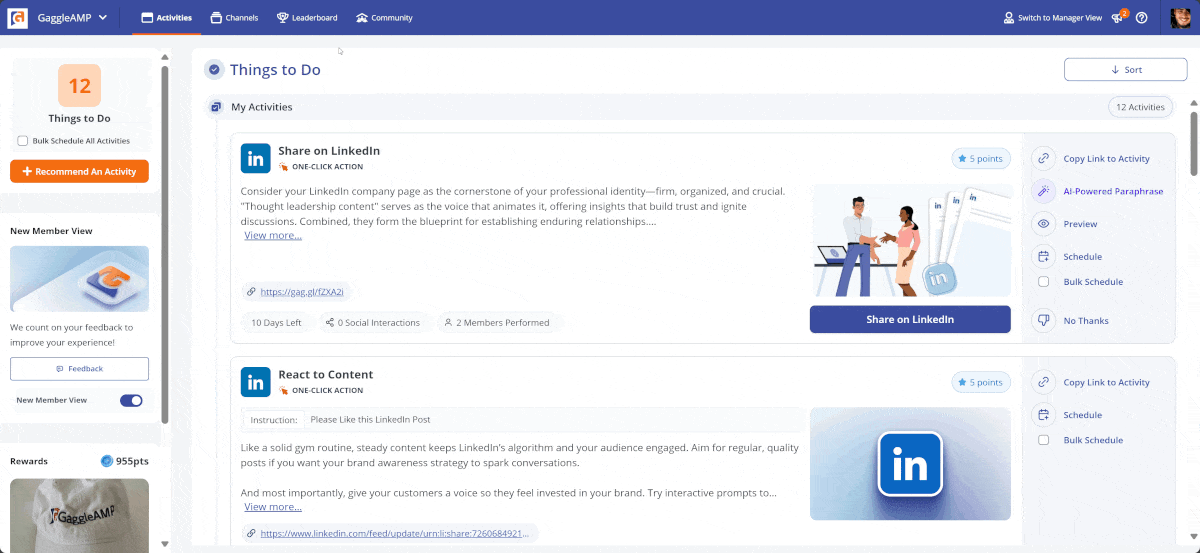
Key features include:
-
Smart activity recommendations: AI suggests the best actions employees can take to amplify branded content, ensuring higher reach and relevance.
-
Paraphrasing tools: Helps maintain authenticity by allowing team members to share content in their own voice, reducing redundancy and fatigue.
-
Advanced analytics: Tracks performance across multiple dimensions—including content type, post timing, and individual employee impact—to continuously optimize advocacy efforts.
By using AI, GaggleAMP helps companies scale advocacy without sacrificing personalization or brand integrity.
Key Considerations Before Implementing AI
While the benefits of AI in B2B marketing are compelling, success hinges on a thoughtful and strategic implementation. Organizations often underestimate the foundational work required to effectively integrate AI into their existing workflows. Jumping in without proper data infrastructure, change management, or tool alignment can lead to underperformance or failure to scale.
Before adopting AI tools, it’s critical to:
-
Ensure clean, unified data: AI models are only as good as the data feeding them. Siloed, outdated, or incomplete datasets can compromise outputs. HBR underscores the importance of data governance and integration in any AI strategy, noting that AI should be layered onto a foundation of accurate and actionable insights.
-
Choose the right tools: Not all AI solutions are created equal. Evaluate tools based on their ease of integration, level of automation, scalability, and how well they align with your business goals and team workflows. Consider pilot testing solutions in a low-risk use case before expanding further.
-
Prepare your team: AI adoption isn’t just a tech decision—it’s a cultural shift. Successful implementation depends on equipping your team with the skills and mindset needed to work alongside AI. Invest in upskilling, clear documentation, and change management to ease the transition and build trust in the technology.
-
Set measurable goals and success metrics: Without clear objectives, it's impossible to track progress or optimize usage. Define what success looks like—whether it’s reduced campaign costs, faster lead qualification, or improved engagement rates.
-
Maintain ethical and transparent practices: AI decisions must be explainable and fair. Ensure your team considers bias mitigation, data privacy compliance (like GDPR), and transparency in automated interactions.
-
Integrate AI with your existing martech stack: AI tools work best when they’re connected to your CRM, content management system, analytics platforms, and marketing automation tools. Avoid siloed deployments that create friction.
Taking these steps helps de-risk AI adoption and ensures it delivers measurable value across the marketing lifecycle.
Future Trends: Where AI in B2B Marketing is Headed
AI in B2B marketing is still in its early innings, but the next few years promise transformative change—especially through the adoption of generative AI. As businesses look to scale more efficiently, create deeper buyer connections, and stand out in saturated markets, generative AI will be central to achieving those goals.
According to McKinsey, generative AI is poised to completely reshape B2B sales and marketing by enabling:
-
Dynamic video and interactive content generation: Marketers will be able to generate product explainers, webinar snippets, demo walkthroughs, and other rich media assets in minutes—tailored to industry, role, and stage of the buyer journey.
-
Hyper-personalized customer journeys: Generative AI allows for truly bespoke content experiences that adjust in real time, from landing pages and email sequences to chatbot flows and LinkedIn messages.
-
Cross-channel campaign orchestration with minimal manual input: AI systems will dynamically synchronize messaging across email, paid, organic social, and even sales outreach to maintain narrative consistency and optimize performance.
-
Enhanced sales enablement content: Sales teams will be empowered with AI-generated one-pagers, proposal templates, and pitch decks customized by persona or vertical—at scale.
-
AI-assisted market research and competitor analysis: Marketers will use AI to generate instant SWOT analyses, customer segmentation maps, and industry benchmarking—eliminating weeks of manual data gathering.
But as AI’s capabilities grow, so does the responsibility to implement it ethically. Transparency in AI-generated content, bias mitigation, and responsible data usage will become non-negotiable in the years ahead.
Gartner defines the future of sales as a shift toward “hyperautomated, digital-first engagement with customers,” which includes the use of artificial intelligence to augment and automate business processes.
Start Transforming Your B2B Strategy with AI and GaggleAMP
AI is no longer optional—it’s foundational. From lead scoring to advocacy, it’s enabling B2B marketers to do more with less and compete with greater agility.
Want to see how AI can elevate your employee advocacy efforts?
Discover how GaggleAMP’s AI tools can help you scale advocacy, drive engagement, and stay ahead of the curve—Request a demo today!





